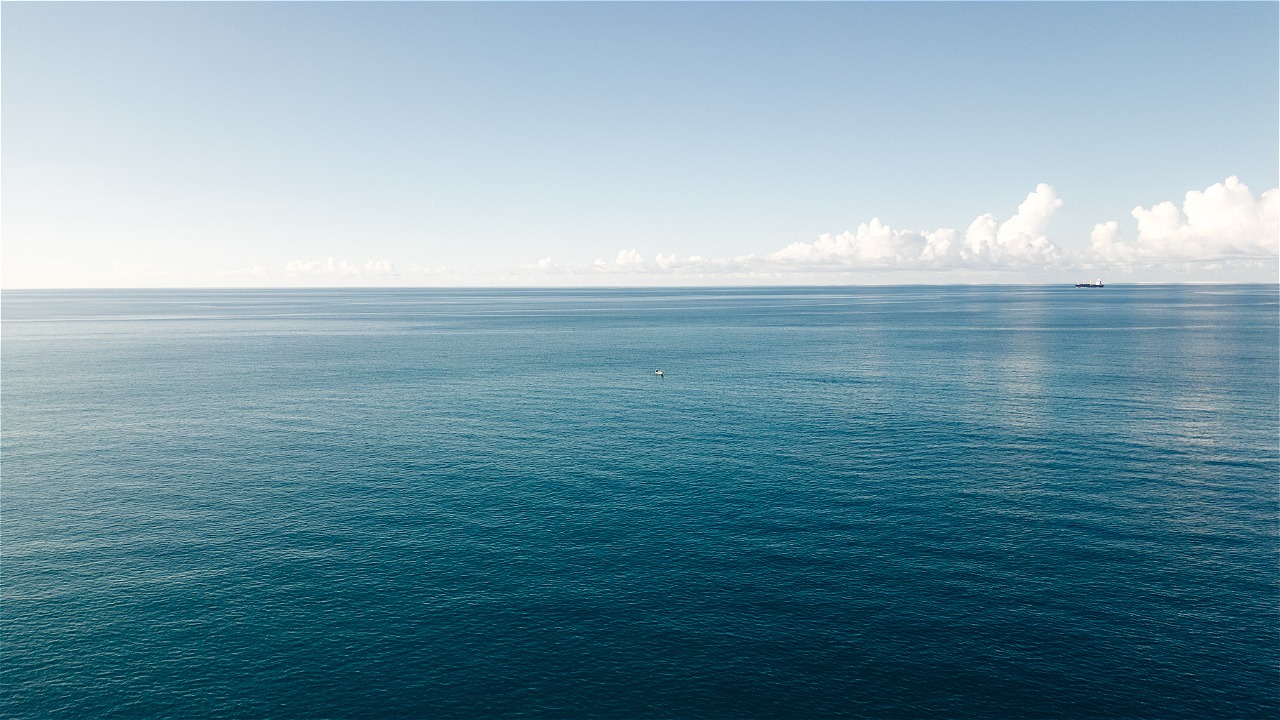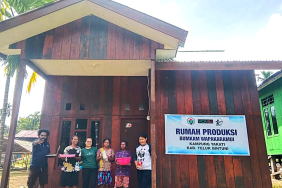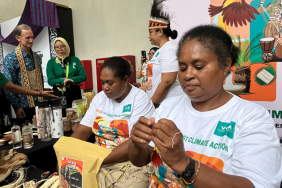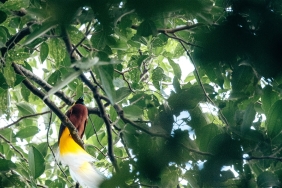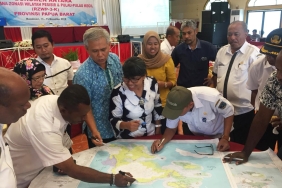CUSTOMARY MANAGEMENT AREAS PROTECT TRADITIONAL USE ZONES IN YOMAKAN VILLAGE, PAPUA
By: Irwanto and Andini Kusumasari
Marine resources are the life expectancy of people living in coastal areas and small islands of Indonesia. The potential of marine resources is utilized to fulfill the survival of future generations. As the foundation of life, the potential of marine resources can be used as a source of food, tourism, transportation, and other environmental services. The potential that has the greatest benefit is fishery resources. This potential requires regulation of utilization, one of which is through a system of boundaries / marine areas.
The Cenderawasih Bay National Park (TNTC) area in Papua has a zoning system consisting of core zones, marine protection zones, tourism use zones, general use zones, and traditional use zones. WWF-Indonesia survey results show that 93% of local fishermen in the TNTC area only conduct fishing and other marine resources in the traditional zone area. However, facts on the ground show that many fishermen are still fishing in an environmentally unfriendly manner. One of them occurs in Rumberpon District, Wondama Bay Regency.
WWF-Indonesia survey results predict that Rumberpon Island has a traditional zone area of ± 38,752 ha. In the past, most of the fishermen of Rumberpon Island, especially in Yomakan Village, caught fish in an environmentally unfriendly way. The rampant use of explosive fishing aids or dopis (local name for fish bombs -Red) in Yomakan Village caused ecosystem damage and decreased the carrying capacity of the environment around the waters. Not only that, the community also feels the impact such as reduced catches, the size of the target species is getting smaller and the fishing area is getting farther away.
Through the Tapapai Fishermen Group, since 2015, the Yomakan community has been committed to changing this destructive utilization pattern. The Tapapai Fishermen Group implements the program accompanied by the Teluk Cenderawasih National Park Center (BBTNTC) and the Department of Marine Affairs and Fisheries, the Department of Culture, Tourism, Youth and Sports, the Community Empowerment Agency, and the Regional Development Planning Agency (Bappeda) of Teluk Wondama Regency, West Papua.
Lambertus Yomaki, one of the Tapapai members explained, "We have carried out several activity programs such as the provision of information huts, ecosystem restoration through coral transplantation methods, and monitoring ecosystem conditions. We have also initiated the establishment of the Customary Management Area which is a limited utilization area in the traditional zone on Apimasum Island."
Customary Management Area
In October 2016, the Tapapai Fishermen Group established a Customary Management Area in Yomakan Village. The activity was attended by the Regent of Teluk Wondama Regency represented by Assistant II for Cooperation and Potential Development, BBTNTC represented by Head of Sub-Division. Planning and Cooperation, Head of Wondama Bay Police, Danramil, members of the House of Representatives, each Head of the relevant Technical SKPD, and the Head of Rumberpon District.
The ceremonial establishment of the Customary Management Area was also used for the inauguration of the information hut and coral planting on the transplantation table. As a follow-up to this activity, the Tapapai Fishermen Group has initiated the preparation of a dive site plan, where dive spots that have special and unique characteristics have been determined. This is done so that the potential of marine resources is optimally utilized not only in the aspect of capture fisheries but also in tourism utilization.
Monitoring of the growth of transplanted corals by the Tapapai Fishermen Group was carried out in early December 2016. The results of this monitoring showed that most of the coral growth was in good and healthy condition although it still had to be cleaned because many of the substrate media were overgrown by moss which could inhibit coral growth. In addition, the survey results also showed that at the coral transplantation site, there were many small fish species associated with major fish categories.
The Customary Management Area of Yomakan Village is recommended as a location for the protection of areas predicted to be Spawning Aggregation Sites (fish spawning areas) of Carangidae, Sphyraenidae, Lutjanidae, Serranidae species. During the spawning season, no fishing activities are allowed in this area. The customary rights holders hope that this customary management area will be expanded and collaboratively guarded/monitored so that the potential of marine resources is maintained. The community hopes that assistance with the implementation of the Tapapai Fishermen's Group program must continue so that the community can slowly abandon uses that have a negative impact on the environment. With the Tapapai Fishermen Group acting as a connector for the transformation of education and knowledge about the environment, it is hoped that it can become a bridge for the implementation of Rights-Based Fisheries Management in Cenderawasih Bay.

